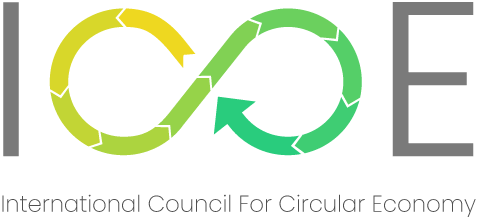
Circular Economy for Industry
Circular Economy is vital for industries as it transforms waste into value, reduces resource dependency, and enhances sustainability. By adopting circular practices, industries can drive innovation, lower costs, and align with global sustainability goals, creating resilient business models for a greener future.
Competitive advantage to the industry
- Cost Efficiency: Circular practices like resource recovery and waste minimization reduce operational costs and enhance profitability.
- Innovation Boost: Encourages the development of sustainable products and processes, fostering differentiation in competitive markets.
- Regulatory Compliance: Aligns with evolving global and local environmental policies, ensuring smoother operations and market access.
- Brand Value & Customer Loyalty: Demonstrates commitment to sustainability, strengthening brand reputation and attracting eco-conscious customers.
Micro, Small, and Medium Enterprises (MSMEs) are crucial to India's economy, contributing approximately 30% to the GDP and providing employment to over 110 million people. As India pursues sustainable development, the transition to circular economy practices is essential for MSMEs, enabling them to minimize environmental impact while enhancing competitiveness. The European Union’s Carbon Border Adjustment Mechanism (CBAM) presents both challenges and opportunities, urging Indian MSMEs to adopt eco-friendly practices.
Benefits to MSME Sector
- Access to Global Markets: By adopting circular economy practices, MSMEs can enhance their competitiveness and meet the sustainability standards required by international markets. This opens up new avenues for exports, allowing them to tap into eco-conscious consumer bases globally.
- Cost Reduction and Efficiency: Implementing circular practices, such as waste reduction and resource optimization, can significantly lower operational costs for MSMEs. This efficiency not only improves profit margins but also positions them favorably in the global supply chain.
- Innovation and Product Development: The shift towards circularity encourages MSMEs to innovate, leading to the development of new, sustainable products that meet emerging consumer demands. This innovation can help MSMEs differentiate themselves in the market and capture niche segments.
- Compliance with International Regulations: As global trade increasingly emphasizes sustainability, adopting circular economy principles helps MSMEs comply with international regulations, such as the European Union’s Carbon Border Adjustment Mechanism (CBAM). This proactive approach mitigates risks associated with potential tariffs or trade barriers related to environmental standards.
Training for policymakers is essential to effectively integrate circular economy principles into governance and regulatory frameworks. By enhancing their understanding of circularity, policymakers can make informed decisions that foster sustainable practices across industries, particularly among Micro, Small, and Medium Enterprises (MSMEs).
Benefits of Adopting Circular Economy in Policymaking
- Enhanced Economic Resilience: Implementing circular economy policies helps MSMEs reduce dependency on finite resources, making them more resilient to market fluctuations and resource scarcity. This adaptability is crucial for sustaining economic growth in an increasingly volatile global market.
- Promotion of Sustainable Innovation: Circular economy frameworks encourage innovation by incentivizing businesses to develop sustainable products and services. This leads to the creation of new markets and job opportunities, driving economic development while addressing environmental challenges.
- Improved Environmental Outcomes: Policymakers trained in circular economy principles can design regulations that minimize waste and pollution. This proactive approach not only benefits the environment but also enhances public health and community well-being.
- Alignment with Global Standards: As international markets increasingly prioritize sustainability, adopting circular economy practices in policymaking ensures that local MSMEs remain competitive. This alignment with global standards can facilitate easier access to international trade and investment opportunities.
Industrial trainings
Explore our industrial courses in Circular Economy to empower your business with sustainable practices that enhance efficiency and competitiveness. Join us in transforming your operations to meet global standards and thrive in an eco-conscious market.
MSME Sectoral trainings
Reduce your operational cost and foster innovation and resilience in a rapidly changing market. We train you to play a pivotal role in creating a more inclusive and environmentally responsible economy.
Policymakers
Specialized training programs for policymakers to integrate circular economy principles into governance and regulatory frameworks, empower them with the knowledge to drive sustainable practices, enabling them to make informed decisions that promote circularity across industries, with a focus on MSMEs.

